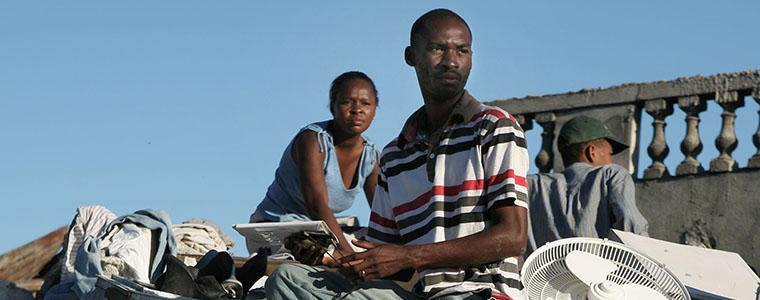Under pressure from President Martelly, Haiti’s Prime Minister Garry Conille resigned after only four months in office, plunging the country into another political crisis. We asked Robert Perito, director of USIP's Haiti Program, what happens next in the western hemisphere's poorest nation?

Under pressure from President Martelly, Haiti’s Prime Minister Garry Conille resigned after only four months in office, plunging the country into another political crisis. We asked Robert Perito, director of USIP's Haiti Program, what happens next in the western hemisphere's poorest nation?
Why did Haiti’s Prime Minister Resign After Only Four Months in Office?
Under pressure from President Martelly, Haiti’s Prime Minister Garry Conille resigned after only four months in office, plunging the country into another political crisis. At issue was Conille’s willingness, despite Martelly’s objections, to cooperate with a parliamentary inquiry into whether the president, prime minister and members of the cabinet had dual nationality, a violation of Haiti’s constitution. Conille submitted his resignation after Martelly ordered cabinet ministers not to meet with the prime minister, a show of force on the issue of who controlled the government. Conille’s resignation followed months of tension between the two men who came from very different backgrounds. The prime minister, a U.S. educated doctor and U.N. development expert, proved a poor fit with the president, a popular entertainer and self-made politician. Most observers believed the break was inevitable. Few were surprised when it happened.
What is the Impact of the Prime Minister’s Resignation on Haiti’s Reconstruction?
As a result of Conille’s resignation, Haiti is left with a caretaker government that will be unable to interact with international donors and guide the country’s reconstruction. Among Conille’s problems with Martelly was the prime minister’s determination to investigate allegations that money from $800 million in earthquake-related contracts awarded by the previous prime minister were used in Martelly’s political campaign. Martelly opposed the investigation, arguing that the country needed to move on. A special audit commission is looking in to the contracts and is due to report soon. With both the government’s leadership and the status of project funding in question, international donors are likely to hold back their contributions to Haiti’s recovery from the 2010 earthquake. The World Bank-run Haiti Reconstruction Fund alone reportedly has $100 million worth of contracts on hold because of doubts about the government’s ability to provide approval in a credible manner.
What is the Future for Haiti’s Government?
President Martelly has promised to quickly nominate a replacement prime minister, but parliament rejected his first two selections for the job and confirmation will not be easy. Beyond Martelly’s problems with parliament, there is the more fundamental problem of the vagaries in the country’s constitution. Termed the greatest threat to Haiti’s stability by former President Préval, the constitution is unclear about the powers of the president and the prime minister and their relationships with the parliament. The constitution calls for the annual election of a third of the senate. Elections for parliament and all local offices must be held this spring, a prospect which seems questionable. Thus, Haiti could soon face a situation where both the government and the parliament are in limbo. Once again, Haiti has reached a tipping point where the country could slide backwards toward authoritarian rule. Observers point to the Haitian court’s decision not to prosecute former dictator Jean-Claude Duvalier and the gathering of armed men at former military bases in response to Martelly’s proposal to reestablish the Haitian Army as reasons for concern.